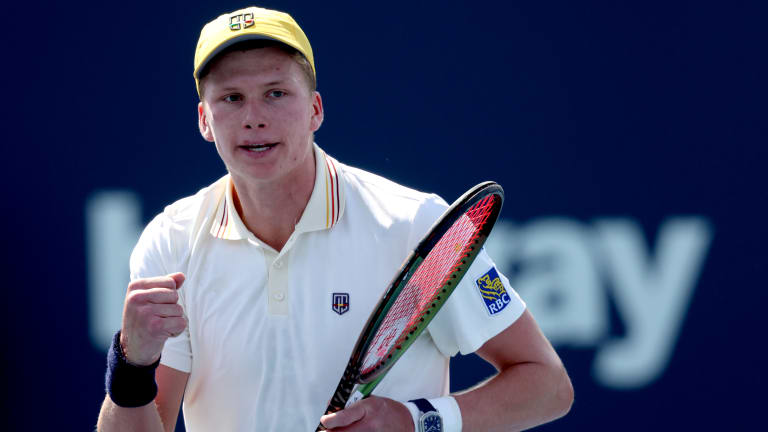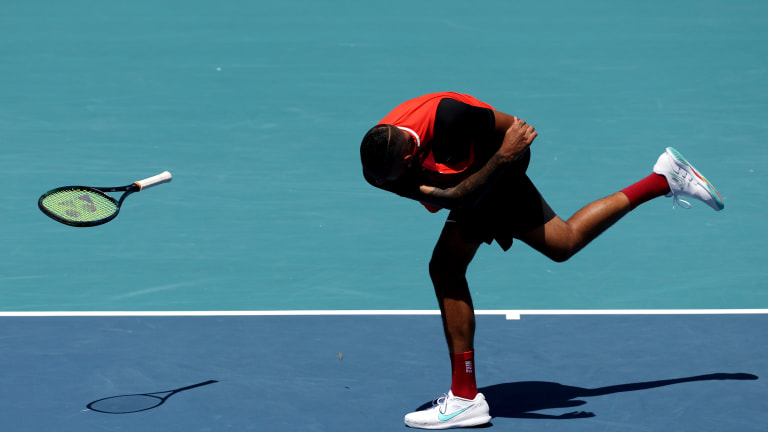Andrea Gaudenzi waves a big(ger) stick, but will clear and meaningful disciplinary protocols for unacceptable player conduct follow?
By Apr 06, 2022Madrid, Spain
Alexander Zverev wins amid controversy in Madrid
By Apr 27, 2025Tennis.com Interview
It's the most wide open clay season on the ATP Tour in 20 years—and the players are here for it
By Apr 24, 2025Ranking Reaction
Aryna Sabalenka keeps growing ranking points lead at No. 1 after reaching fifth final of year
By Apr 22, 2025Game, Set, Bet
ATP Madrid Open Betting Preview: A tournament with real opportunity, or another title for the usual suspects?
By Apr 22, 2025Madrid, Spain
Novak Djokovic returns to Madrid still seeking his 100th tour-level title
By Apr 21, 2025ATP Munich, Germany
Alexander Zverev gifts himself birthday present by sinking Ben Shelton for third Munich title
By Apr 20, 2025ATP Munich, Germany
Alexander Zverev to play for record-tying third Munich title against Ben Shelton
By Apr 19, 2025ATP Munich, Germany
Alexander Zverev needed a win like his 'close one' against Tallon Griekspoor in Munich
By Apr 18, 2025ATP Munich, Germany
Ben Shelton uses altitude to his advantage, joins Alexander Zverev in Munich quarterfinals
By Apr 16, 2025Andrea Gaudenzi waves a big(ger) stick, but will clear and meaningful disciplinary protocols for unacceptable player conduct follow?
If anything, there’s a great opportunity here for all those tennis functionaries who have been bragging about the new spirit of cooperation among the stakeholders to unite on tackling this issue.
Published Apr 06, 2022
Advertising
Advertising

Brooksby could have been defaulted for his racquet toss during a first-round match in Miami. Instead, he was hit with a point penalty and later fined $15,000. In the end, the 21-year-old reached the fourth round to pick up 90 rankings points and $94,575 in prize money.
© Getty Images
Advertising

Kyrgios was fined $35,000 in Miami after being hit with a $25,000 penalty at Indian Wells.
© Getty Images